Our History
Honors College Timeline

Honors College Timeline
Message from the Dean
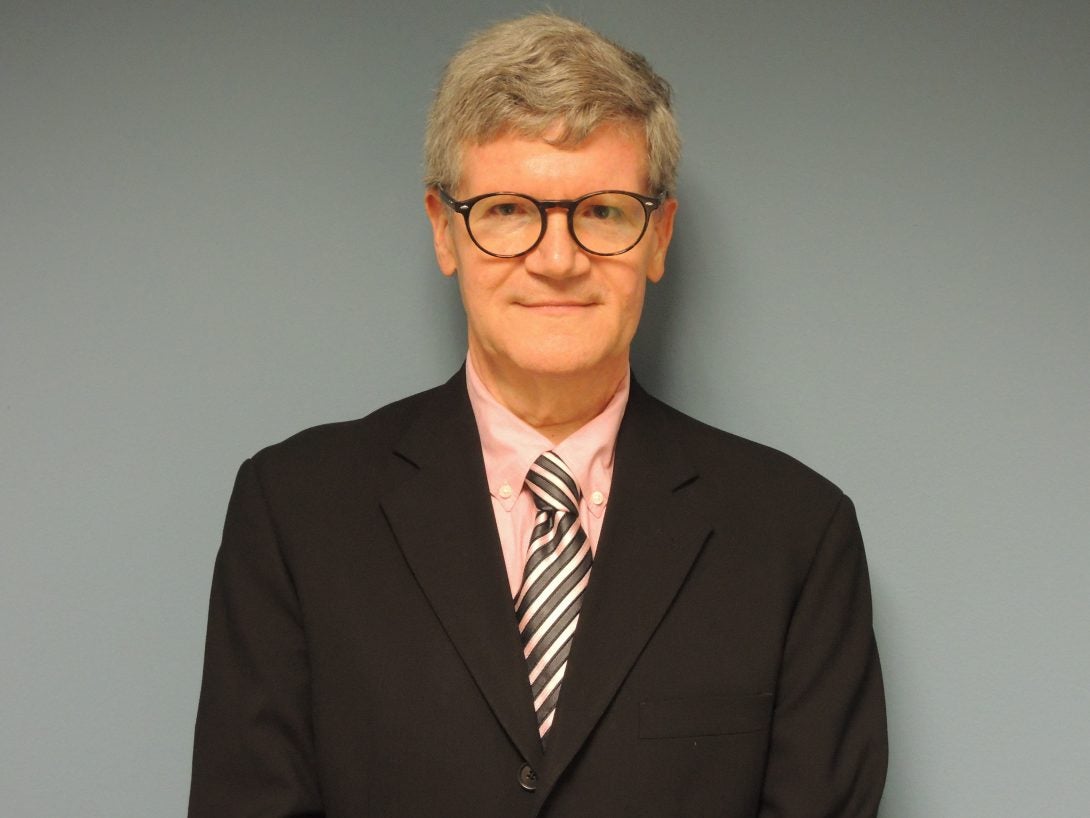
In November 1982 the Board of Trustees approved the creation of the Honors College, and over that four-decade period we’ve graduated about 10,000 students who’ve made us proud in a thousand (or maybe 10,000) different ways. How are we celebrating it? By doing what we do best: teaching, advising, mentoring, and supporting our students, each one of whom contributes to this community in some way.
This semester, doing what we do best includes offering fifty courses that cross the boundaries of traditional subjects and fuel students’ imaginations; connecting students with research that expands knowledge and changes lives; and prepares them, through programs that range from the Loop to London, for productive lives in their communities. In the Honors College there is one measure of our work, and that’s the success of each of our 1900 students. We focus our attention on them because it’s a privilege to be part of their educations.
As it was for all who preceded them over four decades, each student has a unique story, a personal dream, an excellence all their own. In our advising and teaching and mentoring we come to know these individuals, and help each succeed in their own way. The result is a living tradition, 10,000 students strong, and a vital component of UIC’s excellence.
.
Honors College – The Challenge – 1991 VHS
Found in the depths of the Honors College, a straight VHS rip of a promotional video.
1945-1959
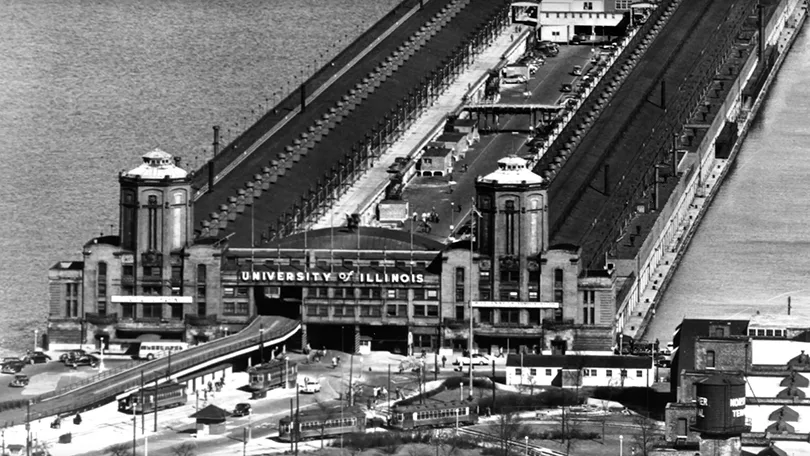
- University of Illinois increased its presence in Chicago by creating a temporary, two-year branch campus on Navy Pier
- Within five years of the campus’s opening – a period during which it was the fastest growing campus in the country
- In 1958, the Board of Trustees of the University of Illinois created an All-University Honors Program.
- First group of Honors students were called “James Scholars”
Following World War II, the University of Illinois increased its presence in Chicago by creating a temporary, two-year branch campus on Navy Pier. The Chicago Undergraduate Division primarily accommodated student veterans on the G.I. Bill. The program allowed all students to complete their first two years of study in Chicago before going downstate to finish their undergraduate degrees at Urbana-Champaign.
In 1958, the Board of Trustees of the University of Illinois created an All-University Honors Program. Just one year later in 1959, when UIC was still at Navy Pier, the first group of Honors students were called “James Scholars” after the first president of the University of Illinois, Edmund J. James. Freshman applicants recommended by their high school principals who scored a 28 or higher on the ACT were invited to enroll as James Scholars.
1965
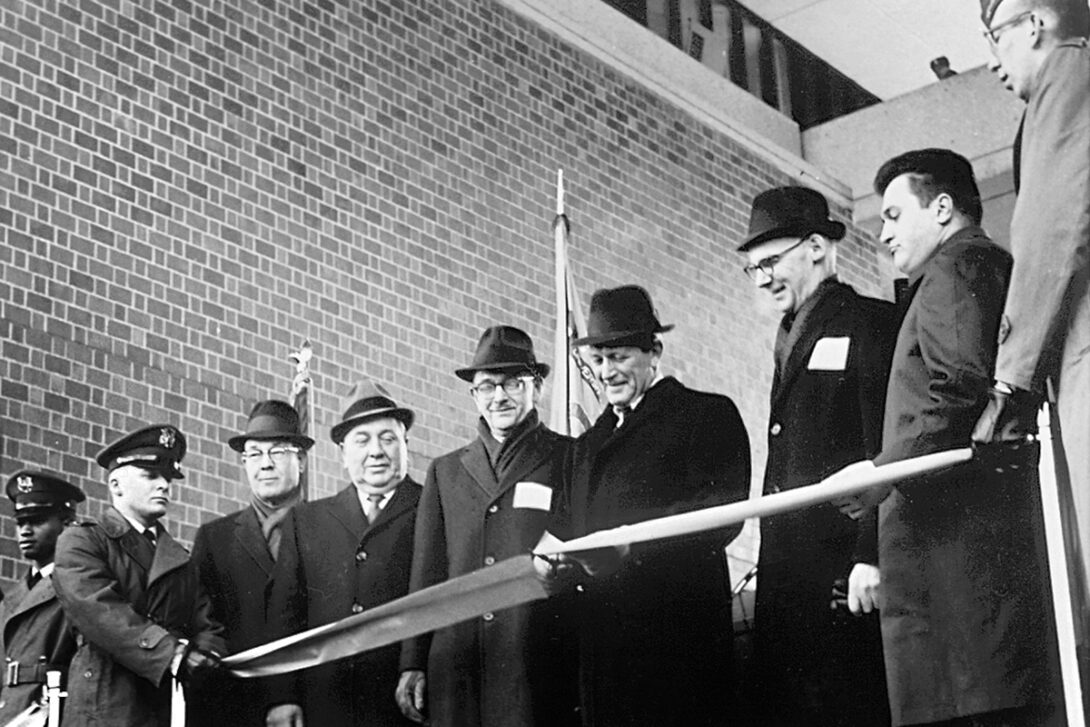
- New Circle Campus opened in 1965 with Mayor Richard J. Daley hosted the opening ceremonies
- Dr. Arthur Pickett became the first Director of the University of Illinois-Circle Honors Program
After the new Circle Campus opened in 1965, the All-University Honors Program was dissolved, and Dr. Arthur Pickett, Professor of Biology, was appointed as the first Director of the University of Illinois-Circle Honors Program, which occupied half of the seventh floor of Chicago Circle Center.
1967
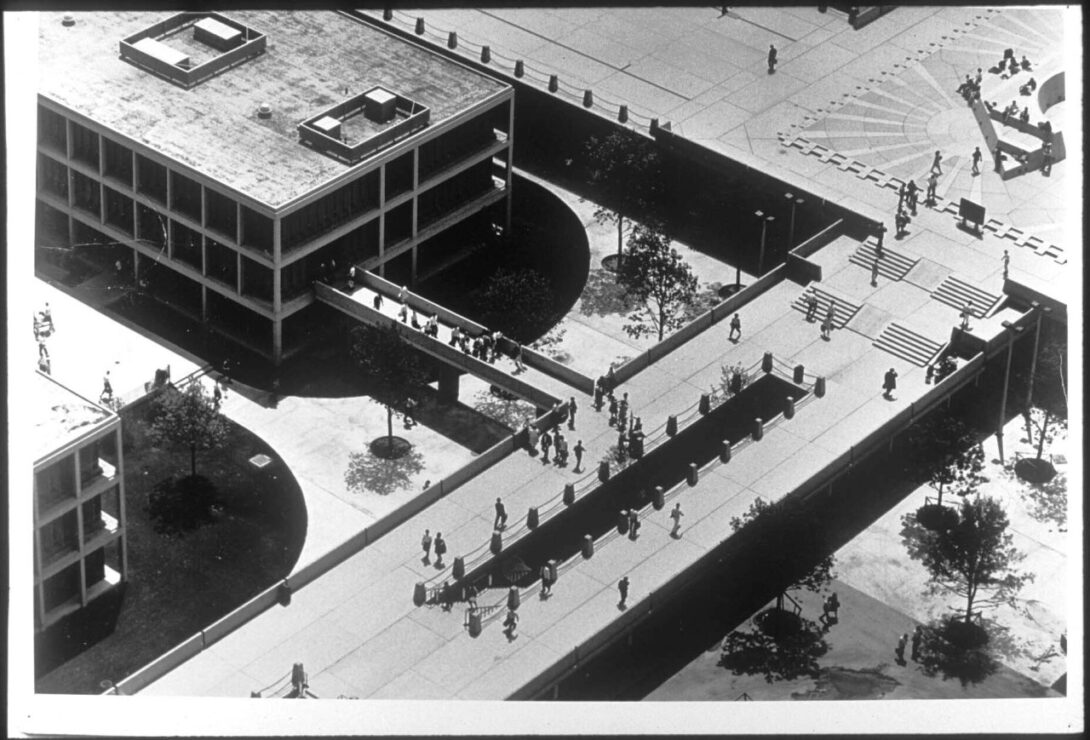
- Nan E. McGhee appointed new director in 1967
- James Scholar Student Advisory Board established
- Honors Program newsletter started
Arthur Pickett, director of the University Honors Program, tragically died in an airplane crash in Vietnam in 1967. Nan E. McGhee was then appointed as the new director. The James Scholar Student Advisory Board was established, consisting of students who submitted recommendations to the Honors Program and helped with orientation activities. The group also sponsored social events and began an Honors Program newsletter.
Honors students were known as ‘James Scholars’ and received priority registration. A series of special lectures and events were developed for students, and these increased as the program matured.
1970-1981
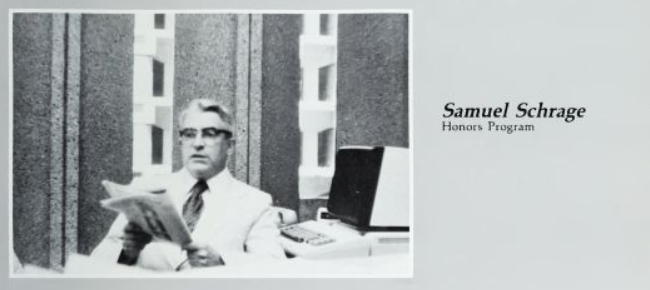
- Samuel Schrage became the Director of the Honors Program in 1970
- New campus-wide responsibilities were assigned to the office: designation of the Valedictorian and Salutorian, compilation of the Book of Academic Honors, and administration of the Excellence in Teaching awards
- In 1980 the Honors Council proposed a unified honors program to be called University College
The 1970s in honors were characterized by dwindling resources, resulting in fewer course offerings for James Scholars. In an effort to reallocate resources, the campus administration announced plans to close the University Honors Program office and decentralize the James Scholars program to the colleges. An outcry from Director of the Honors Program Sam Schrage, honors students, the Faculty Senate, and the Student Trustee resulted in the restitution of funding and cancellation of plans to close the campus-wide office.
Instead, a historical evaluation of all honors programs was spearheaded by Samuel Schrage. Professor Schrage was an early member of the Chemistry department at the Navy Pier faculty. A McGill Phd., Schrage stood out in a sea of black robes at every commencement ceremony with his distinctive scarlet red and green gown and black Beefeater hat. After much discussion and passionate support by not only Director Schrage but many James Scholars students, including Lloyd Zimmerman, Patti Naegele and Dolores Zemont, the Vice Chancellor of Academic Affairs had controversially revised their decision and funded the Honors Program.
.
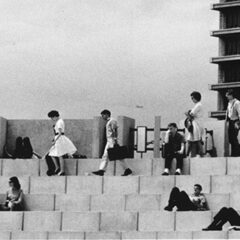
To me, Dr. Samuel Schrage was the embodiment of the James Scholar/Honors program. A scholarly, old world figure, he provided encouragement, positive feedback, and warmth. I can picture him sitting at his large desk on the second floor when I re-read his annual congratulations letters in my UIC file. The James Scholar program instilled in me a sense of academic curiosity and encouraged the pursuit of excellence. It was instrumental in helping me to prepare for a career in science and medicine.
| BS '80, MD '85
.
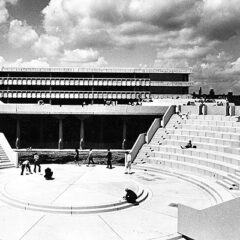
Without question, the late Samuel Schrage, McGill University graduate school classmate of Rudolph Marcus, was the finest teacher known to me in any university setting. His Navy Pier physical chemistry (342) class (1958 or 1959) inspired me to focus on the theoretical aspects of chemical science. This gave me initial exposure to classical thermodynamics, kinetic theory, quantum and statistical mechanics: subject areas that continue to interest me.
In later years, when he directed University of Illinois, Chicago LAS University Honors (James Scholar) Program. I looked him up and had several very stimulating conversations with him on the role of the University in Society. I was quite aware, dating back to experiences in his classroom, how important he considered linking instruction on the then two campuses of University of Illinois. I always sensed his dedication to teaching but also recall one of the UIC students noting to me how valuable she found his McGill University research on membranes in her own undergraduate project.
School of Chemical Sciences Alum
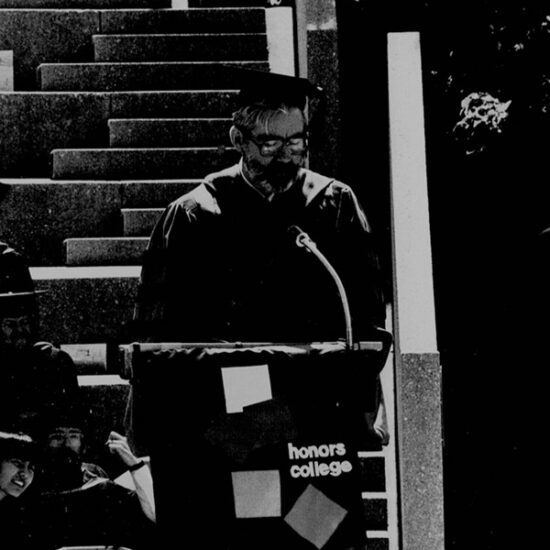
Eric Gislason
In the late 1970’s, the Honors Council (the faculty executive board) began to realize that there was a paucity of resources available to UIC’s highest achieving students. Dick Johnson, a professor of Political Science who was then Vice Chancellor for Academic Affairs at UICC, was a strong advocate for the transformation of the Honors Program into the Honors College. UIC Interim Chancellor, Eric Gislason, pushed the university administration to provide such students with improved honors courses, programming and more comprehensive advising. Their proposal was to develop an honors ‘college’ which would more adequately address the needs of talented students.
Professor Gislason chaired the committee and explained that “the thinking on campus at the time was that we did not have enough students at the upper end who would help set the tone in various classes and make every student’s experience more valuable.” He went on to say that, “The Honors College has succeeded beyond our wildest dreams. It is a wonderful component of our campus.”
1982
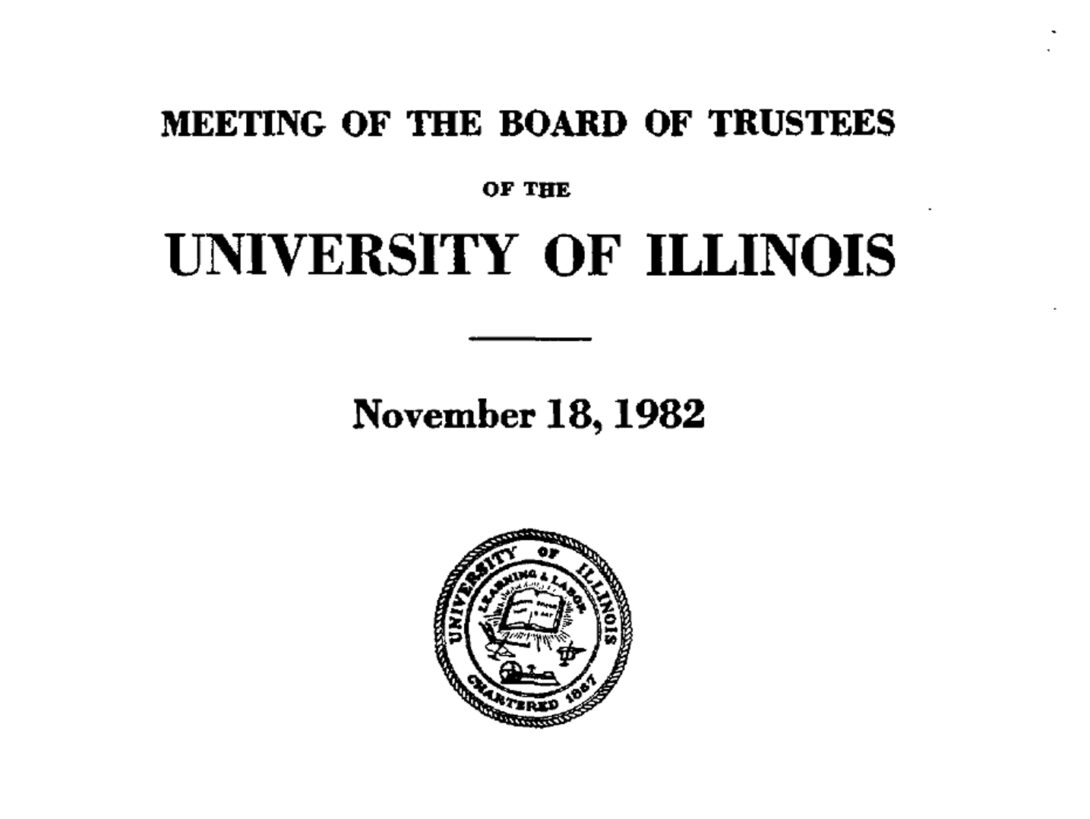
- The Board of Trustees approved establishment of the Honors College
- President Ikenberry consolidates the Medical Center and Chicago Circle to establish UIC
- Susanna Pflaum Grannis is installed as the first Dean of the Honors College
- The Honors College began with an enrollment of 410 students
In 1982, the Honors Council developed a proposal to convert the Campus Honors Program into an Honors College. Honors freshmen were required to enroll in a year-long interdisciplinary core sequence, and each honors student was given a faculty advisor. Upper class students were required to complete an honors project each term. The proposal emphasized, “Above all, it is hoped that the Honors College will enhance the intellectual environment for all students and faculty.”
Susanna Pflaum, Professor of Education, was appointed as the first dean of the college and the new Honors College was given half of the second floor of Science and Engineering Offices as its new home.
1985
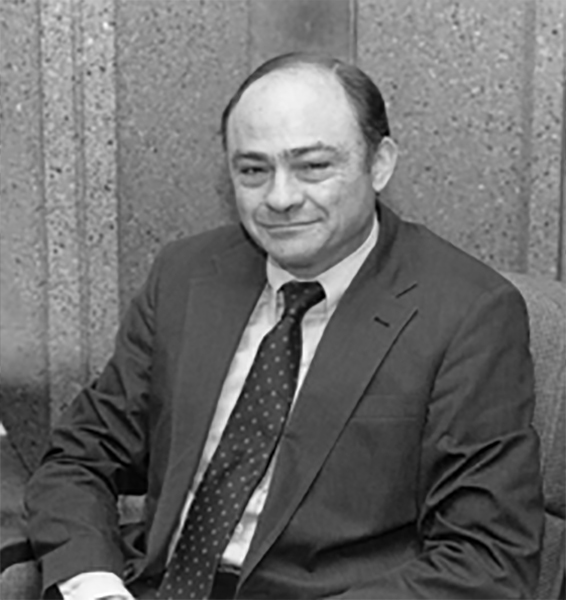
- Howard Kerr takes over as Honors College Dean after Dean Pflaum accepts the job of Dean of Education at Queens College, New York. Kerr is a faculty member from the English Department at UIC.
Kerr started at the University of Illinois at Chicago in 1966, eventually becoming full professor and winning two outstanding teaching awards. His studies focused on 19th-century American fiction, especially the reaction of writers like Twain and James to currents in American culture such as spiritualism. He was the author of a book, Mediums, and Spirit-Rappers, and Roaring Radicals, and the co-editor of two collections, The Haunted Dusk and The Occult in America. In 1985 he became Dean of the UICHonors College, where he worked to develop faculty mentorship and expand undergraduate opportunities for independent research.
The Honors College flourished under the leadership of Dean Howard Kerr in the late 80’s and 90’s, and student enrollment continued to grow. Dean Kerr implemented the Undergraduate Research Assistant program, in which students worked with faculty engaged in research across the disciplines.
1994-1995
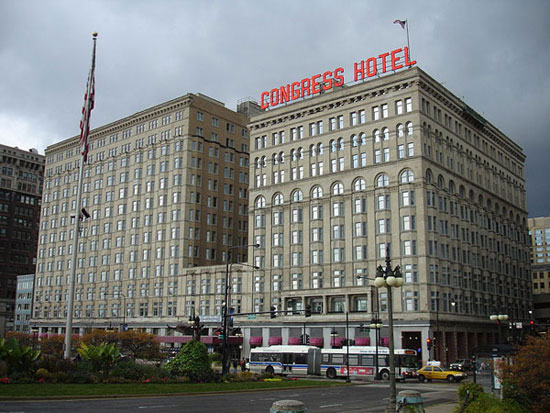
- The first Honors College ball is held at the Congress Hotel, over 200 students attend.
- Dean Kerr retires in 1995 and stands as the longest-serving Dean
The Honors College flourished under the leadership of Dean Howard Kerr’s in the late 80’s and 90’s, and student enrollment continued to grow. Dean Kerr implemented the Undergraduate Research Assistant program, in which students worked with faculty engaged in research across the disciplines. Dean Kerr announced his retirement in 1995. Dean Kerr was the chairperson of the Senate Committee on Academic Programs at the time the College was established and was the longest-serving Dean. The Howard H. Kerr scholarship was later established, covering in-state tuition up to four years.
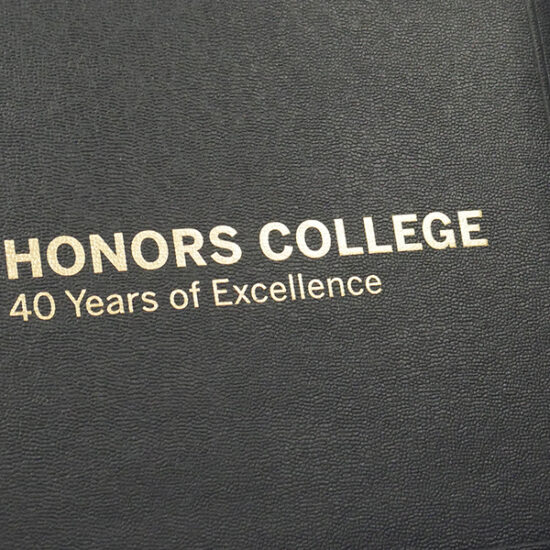
Remembering Dean Kerr
Once in the UIC Honors College, I took many classes that challenged me academically and helped me expand my knowledge and skill set. I recall telling Dean Kerr how much it meant to me that he gave me a chance and believed in me. I never forgot that.
I often credit UIC and Dean Kerr for where I am today—he was quite simply an awesome mentor who saw past what was on paper and recognized students for their full potential. What a tremendous person he was. I know that his impact on UIC has left a strong and enduring legacy throughout the alumni network and beyond.
—
Rachel Klugman Seeger, Class of 1989
Kind words about Matthew Lippman
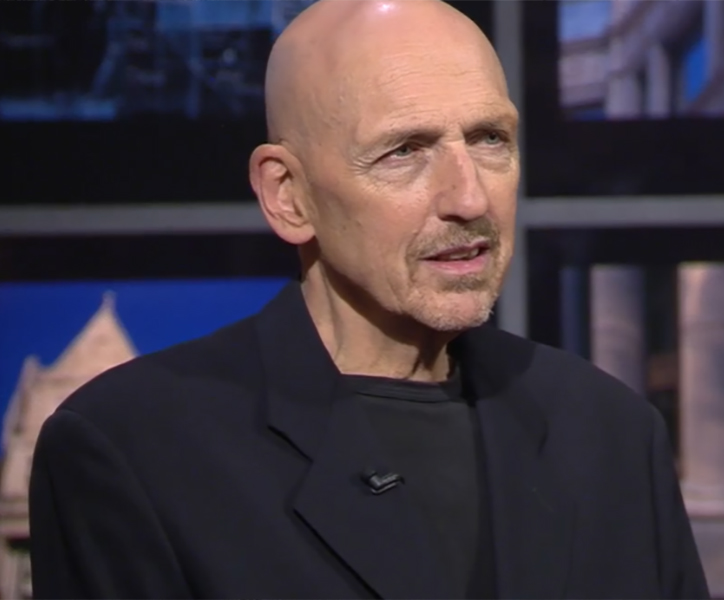
I would not have been able, nor would I have had the desire, to attend law school without the input and support from my Honors College Fellow, Prof. Matthew Lippman. He exposed me to the possibilities that a law degree would provide and was very willing to discuss my future.
Prof. Lippman also listened to me. He made notes when I talked to him. The time came that I anxiously asked him to write a letter of recommendation for me to provide to the law schools as part of the admissions process. His writing was short and deceptively simple, but eloquent and eye-opening. He understood my background and where I came from, and what I hoped to achieve with my life.
DePaul University College of Law offered me a merit-based scholarship. I attended a welcoming party for scholarship recipients, and was introduced to some of the admissions staff. They told me that Prof. Lippman’s words of recommendation, his ability to express my background, struggles, hopes and achievements had truly helped to win them over–not only to admit me, but to award me the scholarship.
I’m not the sentimental type, and don’t keep many papers from years ago, but I’ve kept Prof. Lippman’s letter in my lockbox for over 14 years.
—
Fred Nickl – BA 1995
1996 - 1997
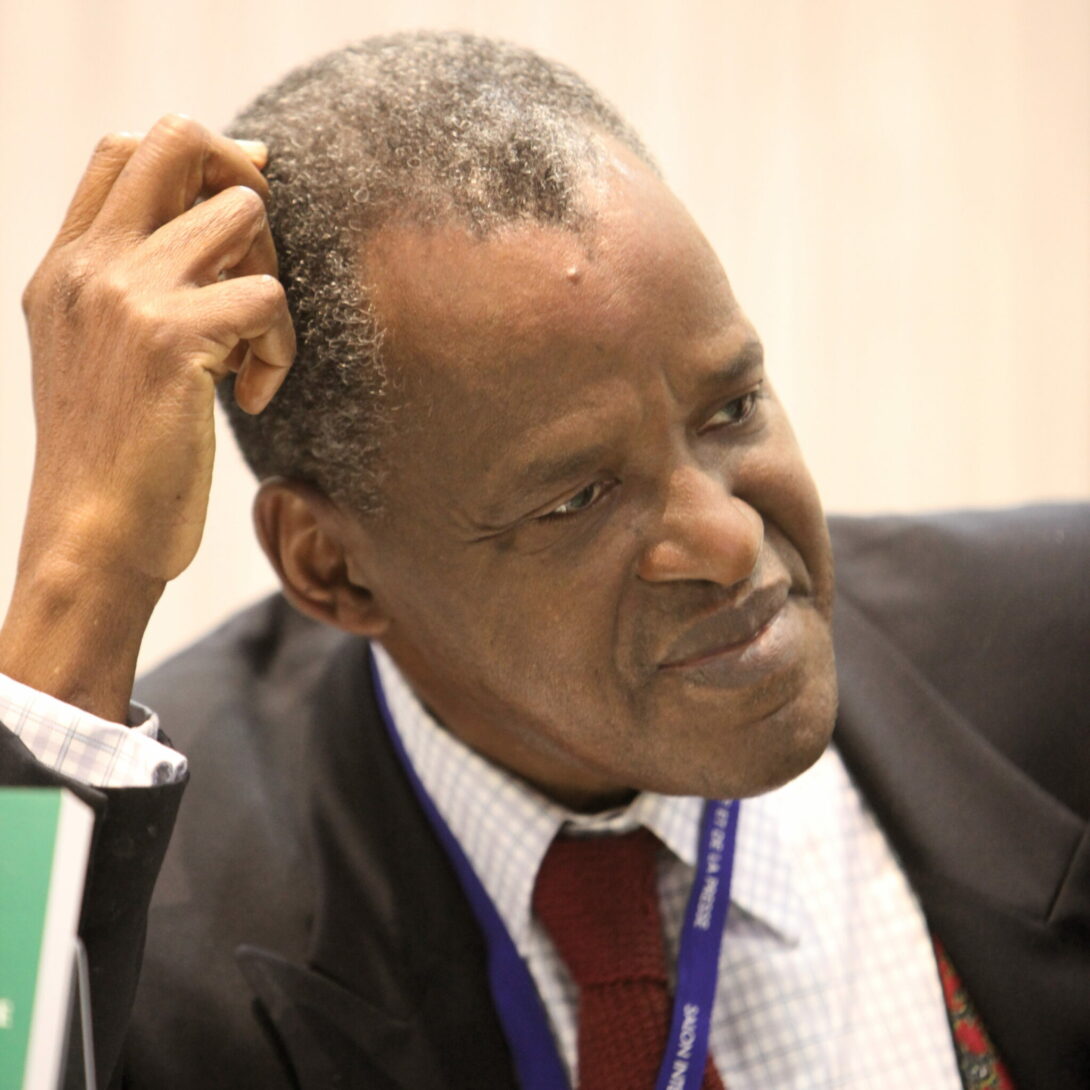
- Lansine Kaba becomes Dean 1996
- Guaranteed Professional Program Admissions (GPPA) is started
- The Honors College moved from SEO to Burnham Hall
Lansine Kaba, Professor of African-American Studies and History, became the new dean in 1996. That same year, the campus announced a new initiative, the Guaranteed Professional Program Admissions (GPPA), resulting in the largest freshman class in Honors College history.
The campus renovated the first floor of Burnham Hall in 1997 to accommodate the growth in the Honors College, which had reached 1,350 students. The Honors College was able to create better spaces for student use.
In addition to expanding the lounge and computer labs, the College renovated a classroom and created a quiet study lounge.
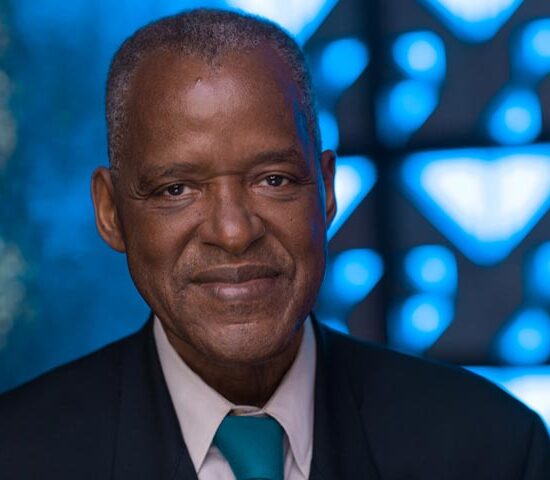
Dean Kaba
Lansiné Kaba began teaching African history at the University of Minnesota in 1970. In 1974, he published The Wahhabiyya: Islamic Reform and Politics in French West Africa, 1945-1960 through Northwestern University Press. The book earned him the 1975 Melville J. Herskovits Prize of the African Studies Association for the best work in English in African Studies. In 1986 he became the head of the African Studies at the University of Minnesota and remained in this position until 1995. In 1989 he published, Le non de la Guinée à De Gaulle, a book in which he goes into detail on the historic referendum vote in Guinea for Independence from France on September 28, 1958.
In 1991, he discussed President Kwame Nkrumah’s rise in Ghana and Ghana’s search for African Unity post-independence in the novel Kwame Nkrumah ou le rêve de l’unité africaine. In 1995 he wrote about the absence of democracy in Africa in Lettre à un ami sur la politique et le bon usage du pouvoir. From 1996 to 2001 he was the Dean at the Honors college of the University of Illinois at Chicago.
.
We think having these facilities for students is essential in fulfilling our mission. Space is important in bringing students and faculty together. In the Honors College, the social and intellectual experiences merge and give students and faculty a chance to interact with one another outside of the classroom.
2001 - 2003
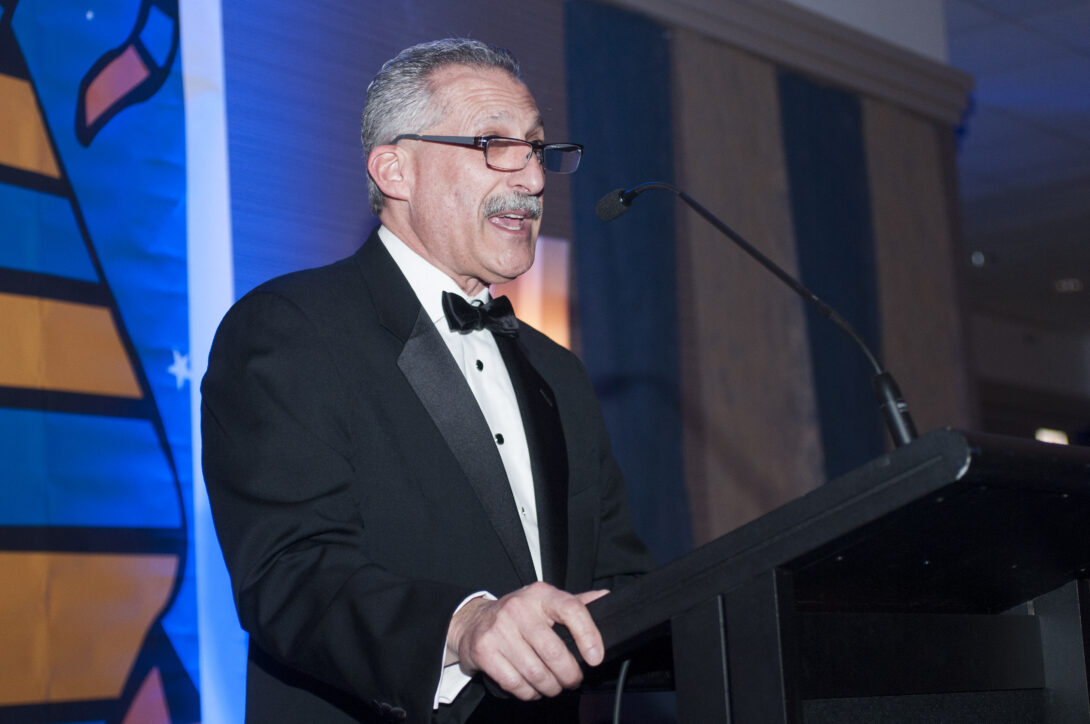
- Dean Kaba stepped down from the deanship in 2001
- Executive Associate Dean Janet Madia was named Interim Dean.
- A search for a new dean resulted in the appointment of Lon Kaufman, Professor of Biological Sciences, in 2003.
Under Dean Kaufman’s guidance, the college saw the introduction of interviews for all applicants, an increased grade point average requirement of 3.4/4.0 and the launch of the senior capstone project.
2005 - 2008
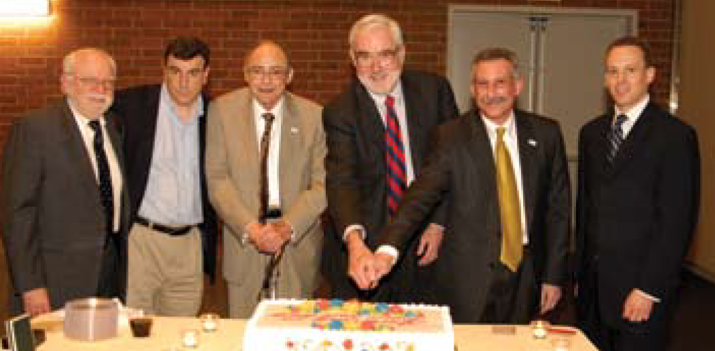
- The Honors College Educational Policy Committee votes to add a year-long Capstone requirement to the Honors College curricula.
- Housing moved from Commons West to Stukel Towers
- 2007 – 2008 – The Honors College celebrates its 25th Anniversary
- 2008 – Bette Bottoms is named Interim Dean of the Honors College
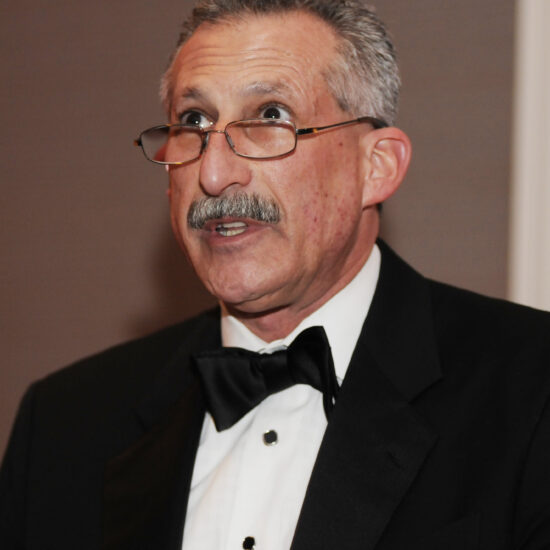
Dean Kaufman 25th Anniversary Closing Statement
“The future of the college harks back to the beginning. The concept that an Honors College would enhance the intellectual environment for all students and faculty at UIC is still central. We have broadened that concept to include the entire UIC community, be they faculty, students, alumni or the neighborhood we have built here on the near west side of Chicago. I believe this is our future, and I invite this community here tonight to participate fully in it.”
—
Photo from 2012 Honors Ball
25th Anniversary
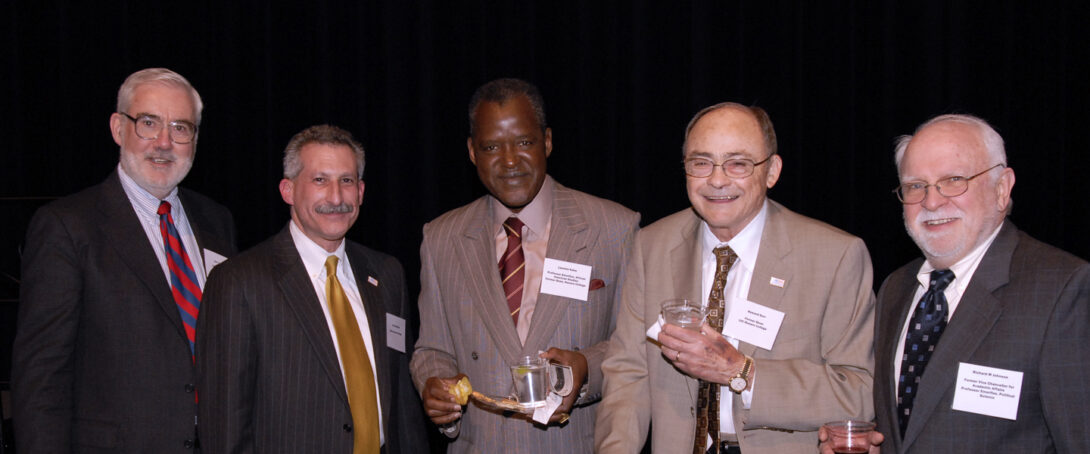
(left to right) Chancellor Emritus Eric Gislason, Former Dean Lon Kaufman, Former Dean Lansiné Kaba, Former Dean Howard Kerr, Former Vice Chancellor for Academic Affairs Richard M. Johnson
2009 - 2015
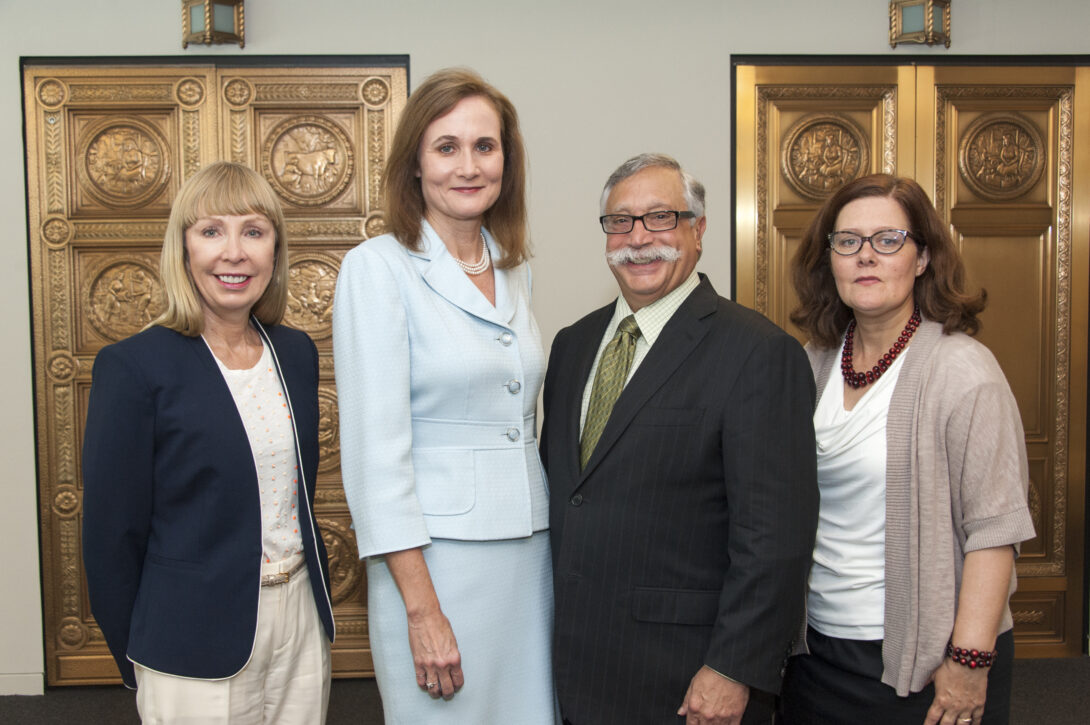
- 2009 – Bottoms is named permanent Dean of the Honors College
- The Kerry and Sarah Wood Family Foundation established the Wood Family Foundation Scholar 2013
- The Honors College also initiated two new scholarships to support students: Over $200,000 in Fresh Start Scholarships and Ten City College Honors Transfer Awards of $1,000 each for incoming transfer students from City Colleges of Chicago for Fall 2015.
- CME awards the Honors College $1 million dollars to support scholarships in Spring 2015
The Kerry and Sarah Wood Family Foundation established the Wood Family Foundation Scholar. Established by former star Chicago Cubs pitcher Kerry Wood and his wife Sarah, the scholarship is intended for an incoming first-year student with financial need and academic ability from one of the Chicago neighborhoods that the Wood Family Foundation serves — Austin, Englewood, Humboldt Park, or Lawndale. All tuition, fees, assessments, books, and room and board are provided and the ACCC provides a laptop.
In Spring 2015, the CME Group Foundation gave the Honors College one million dollars over the next four years: $900,000 will support scholarships for students pursuing careers related to finance, especially first-generation college students from Chicago Public Schools. Another $100,000 will be used to provide emergency funds for Honors students of any major.
2015-2019
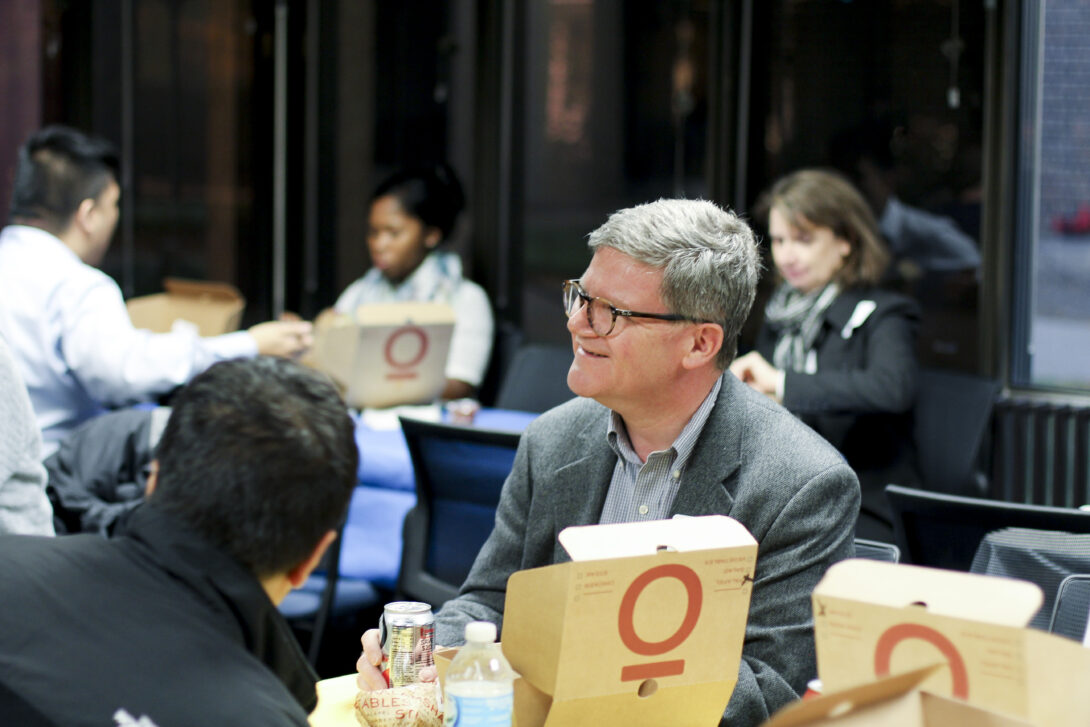
- 2015 – Dean Bottoms returns to the faculty, and Ralph Keen is named interim Dean
- 2016 – Ralph Keen is named permanent Dean of the Honors College
The Honors College curricula is restructured from requiring one honors activity per term, to requiring 18 Honors units to receive recognition as an Honors College graduate.
2020 - Present
- The Honors College was one of the first colleges to pivot to transitioning online and offering remote services as the COVID-19 pandemic began
- Capstone presentations, graduation and advising conducted over Zoom
- 2021 – UIC and the Honors College begin to “Circle Back” to campus, offering hybrid options with COVID guidelines.
- The Honors College facilities go under remodeling, including the Student Lounge and Quiet Study and is finished by Fall 2021
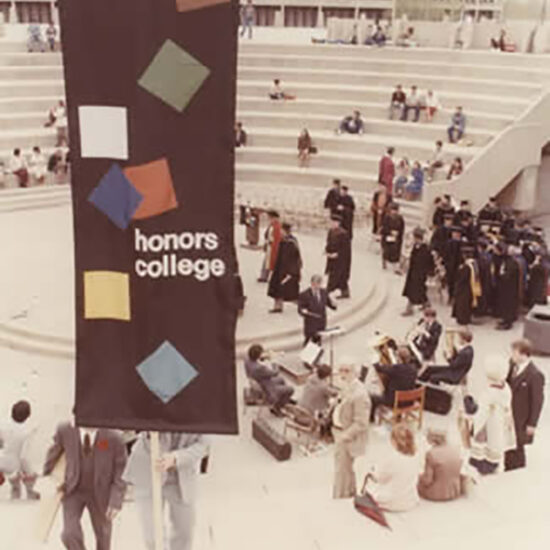
Alumni: Share Your Accomplishments
Let’s celebrate the many successes of our Honors College community.
Share with us your own impact stories and pictures, so that we can highlight your accomplishments!